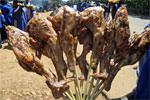


Winning starts with what you know
The new version 18 offers completely new possibilities for chess training and analysis: playing style analysis, search for strategic themes, access to 6 billion Lichess games, player preparation by matching Lichess games, download Chess.com games with built-in API, built-in cloud engine and much more.
A few months ago in the corner of a bar that converts itself into a chess club on weekday evenings, in a city called Nairobi that is the capital of Kenya, a country hard to find on the chess map, a Dutchman called Dr. Nikolai Van Beek and myself were casually discussing in a smoky, Botvinikesque atmosphere how we could come up with a local chess event that would capture the national imagination. The idea of an Internet chess match between a select Kenyan side and Wageningen Chess Club of Holland, with whom Dr. Nikolai had personal connections was concocted.
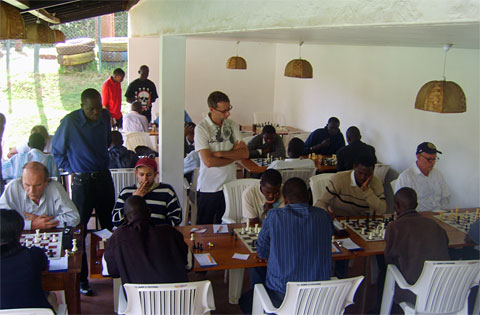
Weekend gathering at the Nairobi Chess Club which organised the Kenya-Holland
Internet match
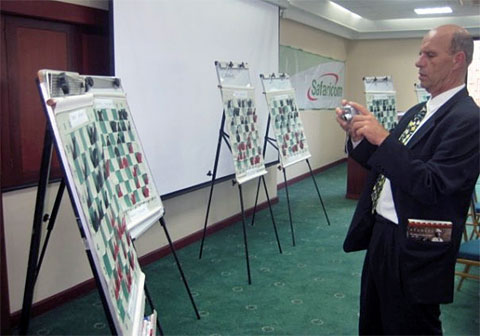
The man who made it all happen: Dr. Nikolai van Beek of the Wageningen Chess
Club in Holland
The two of us set about trying to make this idea a reality but also realized our task would be daunting, especially in a country where an attendance of 50 players in a national open constitutes a success. This is the sort of chess region where owning the latest version of Fritz will give you a cult following.
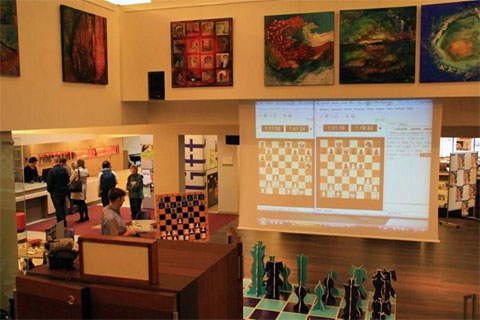
The set-up in Holland, with Wageningen Chairman Bert Torn analysing
However, the small Kenyan chess fraternity is anything but not enthusiastic and many volunteers stepped forward to help. Leading the pack was Nairobi Chess Club, the oldest club in the country having set itself up in 1958 and active ever since. Its chairman Kim Bhari, the hardest working man in Kenyan chess, decided to have the club take over not only the logistics of organizing the event but also managed to negotiate a lucrative sponsorship deal for the event with Kenya’s biggest mobile communications company, Safaricom.
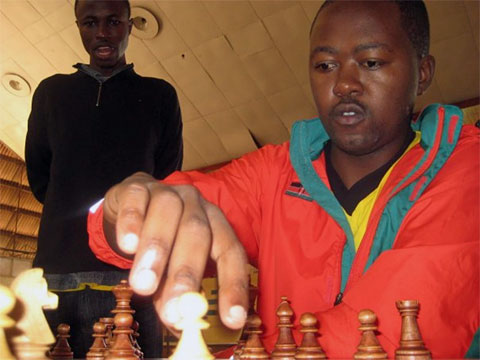
Ben Magana preparing for has game against GM Jan Timman
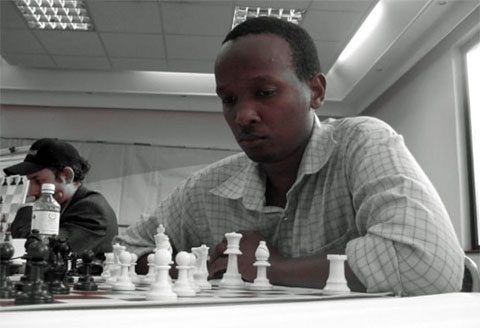
Playing Board Five for Kenya Simbas: Githinji Hinga
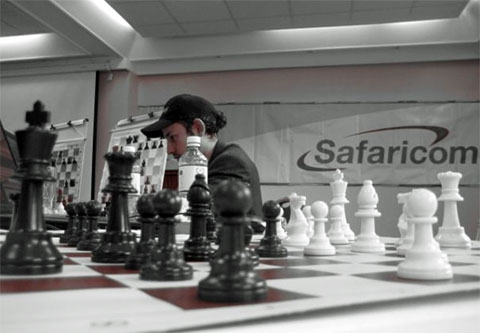
Our author Mehul Gohil struggling on Board Four
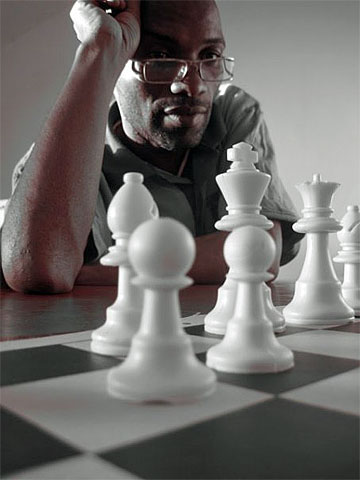
Philip Singe, who took some of the photographs in this report
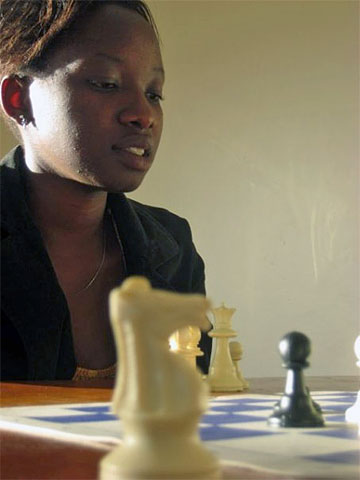
Purity Gachigi, Kenya's Ladies champion
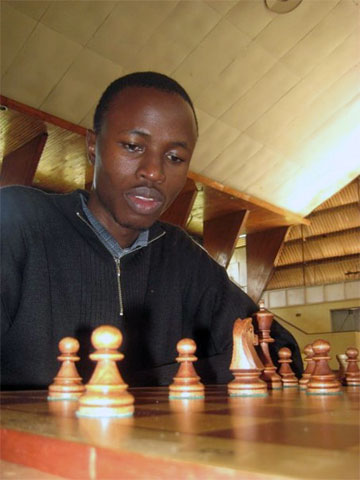
Akello Atwoli, Kenya Simbas Board Six player
Safaricom were duly impressed with the Playchess interface we planned to use to make the match happen over the Internet. In addition, the Kenyan government also encouraged the event to go ahead as they saw this as an opportunity to exhibit the potential of the newly landed fibre-optic cable in the country.
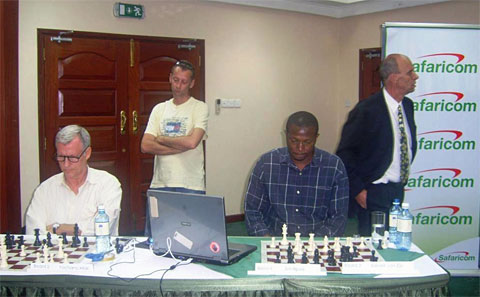
Things are getting tense for the Kenya team
The Wageningen Chess Club also supported our endeavour in a strong way. Not least by lining up for the Kenya select team (which we christened “Kenya Simbas”, simbas meaning lions in Swahili) a mighty opposition in the form of the legendary GM Jan Timman and IM Yochahan Afek as their boards one and two.
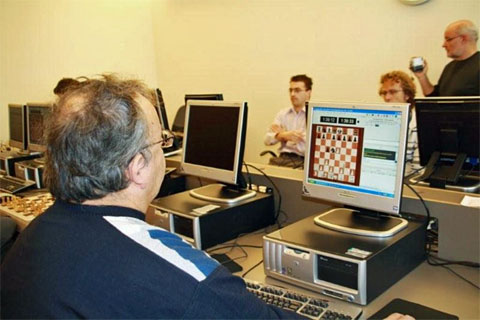
IM Yochahan Afek ponders his next move in Holland
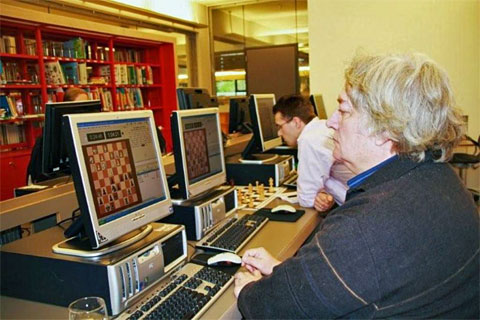
Jan Timman likes his position in his game
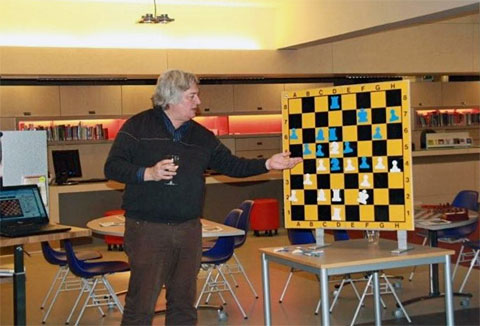
Jan Timman explains to audience how he beat a 'simba' (Ben Magana)
Back in Kenya the rest of us thought it couldn’t be true that such strong players would be willing to take some time off their normal schedules and agree to play with us! The other players on the Wageningen team were Sander Van Eijk, Fred Jonker, Erwin Ooerbeek and Hotze Hofstra.
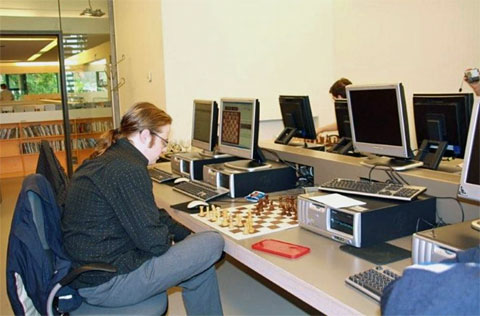
Hotze Tette Hofstra prefers a normal board
The Kenya Simbas team consisted of Ben Magana, Peter Gilruth, Ben Nguku, Mehul Gohil, Githinji Hinga and Akello Atwoli. Battling the Wageningen team proved a very tough task and in the end the Kenya Simbas went down to a heavy 6-0 loss. However, the bad result was more then compensated for by the publicity the event generated back in Kenya. It was certainly one of the biggest chess events ever held in the country, and all major national media outlets reported on it.
Here now are some pictures of the event as held in both Nairobi and in Wageningen plus some photos taking you on a mini-tour of the city of Nairobi.
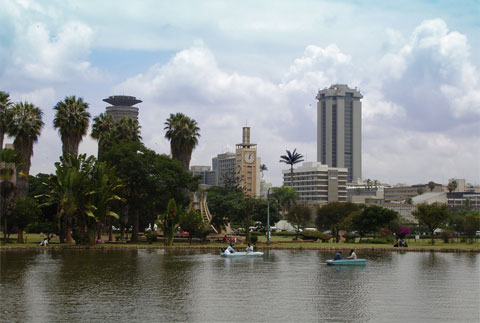
The skyline of Nairobi, capital of Kenya
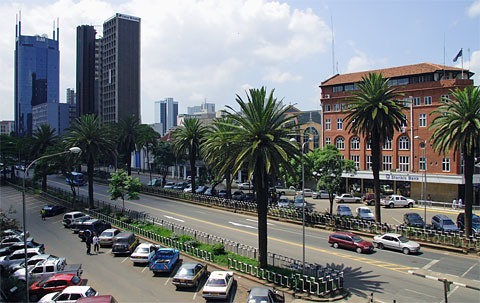
Kenyatta Avenue, which cuts right through the middle of downtown Nairobi
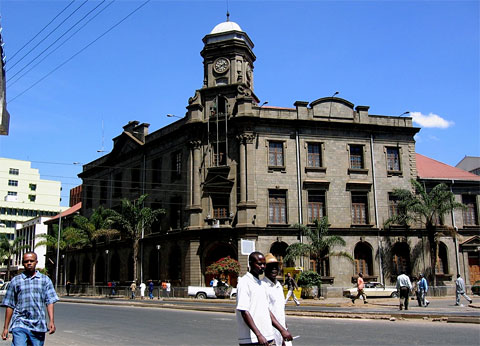
Khoja Mosque, one of the oldest buildings in Nairobi
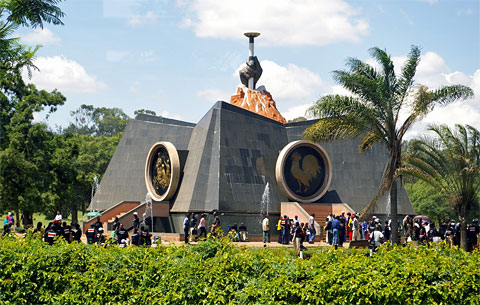
The KANU political party monument
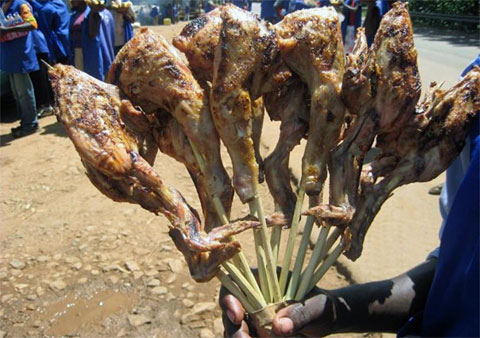
Delicacy found on Nairobi streets – and what became of the Kenya Simbas
team
at the hands of their Dutch opponents
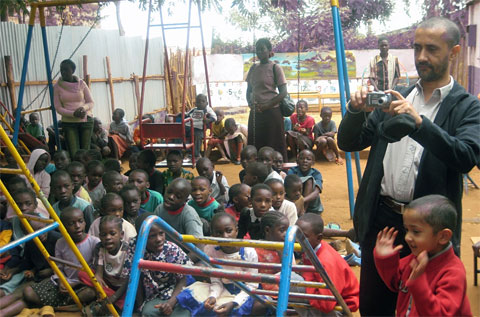
Nairobi Chess Club chairman Kim Bhari takes some photos at Little Rock school
in Kibera Slum where chess is taught as a subject
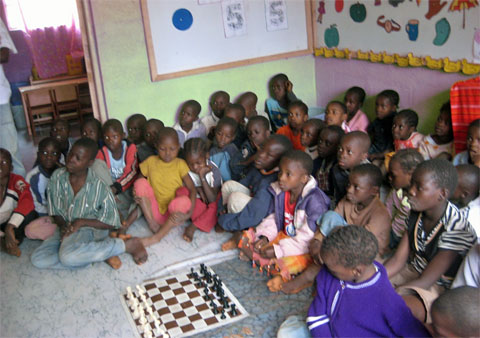
A group from among these will one day avenge the Dutch victory over the
board